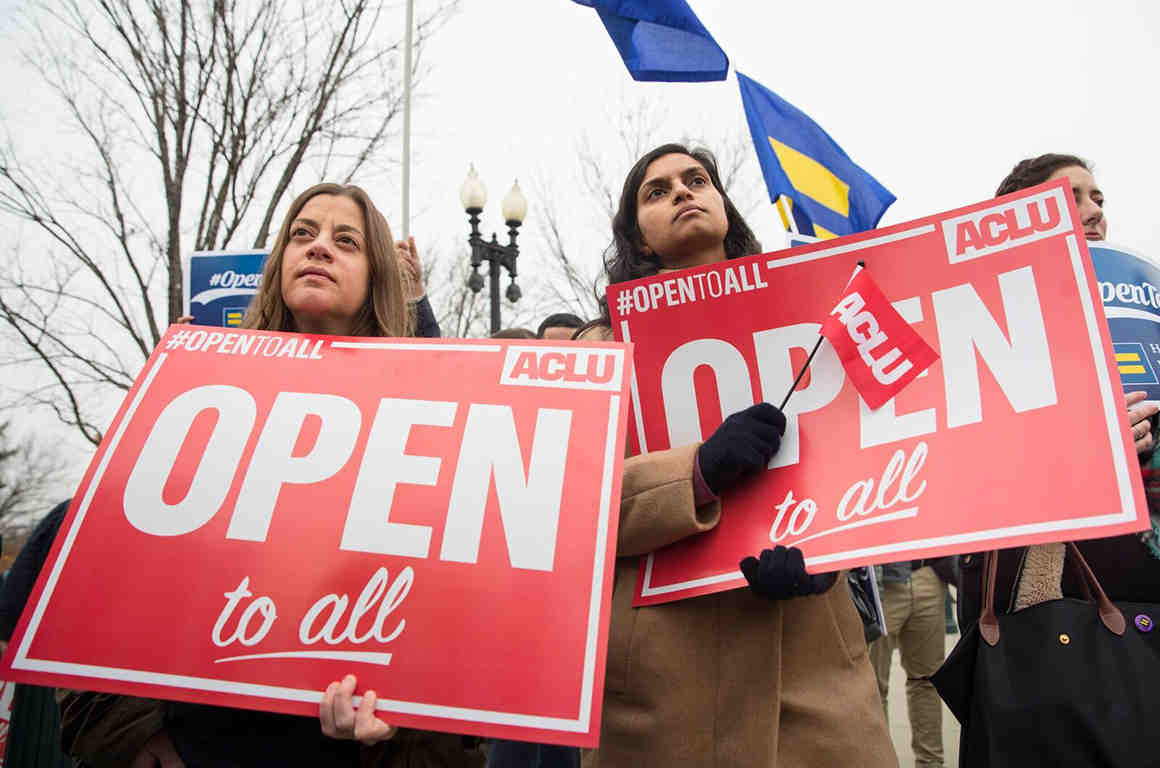Manar Waheed, Legislative and Advocacy Counsel, ACLU
& Brian Hauss, Staff Attorney, ACLU Speech, Privacy, and Technology Project
Members of Congress last month introduced the “Anti-Semitism Awareness Act.” The bill purports to address a real problem: According to the FBI, incidents of hate crimes motivated by anti-Jewish bias have significantly increased in recent years.
But anti-Semitic harassment is already illegal under federal law. The new bill does not change that fact, but its overbreadth makes it likely that it will instead silence criticism of Israel that is protected by the First Amendment.
The proposed legislation, for example, defines speech that applies a “double standard for Israel,” or denies “the Jewish people their right to self-determination,” as evidence of anti-Semitism. It also directs the Department of Education to consider such speech in its investigations, which could result in a loss of federal funding for schools. On Monday, the ACLU sent a letter to Congress opposing the bill.
The ACLU does not take a position on the Israeli-Palestinian conflict, but it does take firm positions on efforts to stifle free speech. The threat of a federal investigation and subsequent loss of government funding will likely scare schools into suppressing speech critical of Israel. Students and teachers who criticize the Israeli government or advocate for Palestinian rights are the obvious targets. But freedom of speech will be the loser.
The bill is part of a disturbing surge of government-led attempts to suppress the speech of people on only one side of the Israel-Palestine debate. The trend manifests on college campuses, in state contracts, and even in bills to change federal criminal law, but the impact is the same: Those who seek to protest, boycott, or otherwise criticize the Israeli government are being silenced.
On college campuses, a growing number of students and teachers have been disciplined or threatened with discipline for engaging in actions in support of Palestinian rights or in opposition to Israeli policies. Student groups like Students for Justice in Palestine have been sanctioned for legitimate protests and even banned. Such attacks on free speech are likely to escalate now that the Trump administration has nominated Kenneth Marcus, who has led numerous campaigns to suppress student speech critical of Israel, to lead the Department of Education’s Office of Civil Rights. Marcus has urged people to file complaints of anti-Semitism with the Department of Education in response to criticism of Israel, arguing that the mere filing of such complaints, regardless of their outcome or merit, will pressure schools to suppress anti-Israeli criticism.
Outside campus life, campaigns aimed at excluding critics of Israel from participating in public events are mounting, often with support of publicly funded institutions. A Chicago-area public library temporarily cancelled a talk about a book titled “The Battle for Justice in Palestine,” before reconsidering its decision. The Missouri History Museum cancelled a community event titled “From Ferguson to Ayotzinapa to Palestine,” after organizers refused to remove Palestinian panelists.
In Nassau County, New York, local officials tried to stop a local arena from featuring a performance by Roger Waters of Pink Floyd because he advocates for a boycott of Israel. And, earlier this year, Florida officials attempted to prevent Lorde from performing in Miami and Tampa after she cancelled a concert in Tel Aviv. (All three shows went on.)
State legislatures have joined the effort. The South Carolina Legislature recently introduced budget language forcing public colleges and universities to use a definition that equates criticism of Israel with anti-Semitism. The definition is almost identical to the language used in the federal Anti-Semitism Awareness Act introduced in Congress. More than 100 other bills penalizing boycotts of Israel have been introduced in state and local legislatures in the last four years, and 24 states have enacted legislation targeting the boycott movement. Congress, too, is currently considering a bill that would make it a crime to participate in certain boycotts of Israel.
Many of these efforts clearly don’t withstand legal scrutiny. Earlier this year, in response to an ACLU lawsuit, a federal court in Kansas blocked that state’s anti-boycott law, recognizing that political boycotts of Israel are constitutionally protected and that the state can’t suppress or undermine them. The ACLU is challenging a similar law in Arizona, on behalf of a lawyer who was asked to certify that he doesn’t boycott Israel in order to renew his law firm’s contract to provide legal services to incarcerated people. Fourteen other states have laws similar to those in Kansas and Arizona. These laws have rightly attracted scorn and ridicule — most famously in Dickinson, Texas, which required Hurricane Harvey victims to pledge not to boycott Israel as a condition of receiving relief aid.
In 1943, Supreme Court Justice Robert H. Jackson famously wrote, “If there is any fixed star in our constitutional constellation, it is that no official, high or petty, can prescribe what shall be orthodox in politics, nationalism, religion, or other matters of opinion.” In other words: The First Amendment stands as a bulwark against government attempts to suppress dissent.
These efforts to censor criticism of the Israeli government and advocacy for Palestinian rights do a disservice to the real problem of anti-Semitism in the United States. Addressing anti-Semitism is important and necessary, particularly in the current climate, but it does not require silencing constitutionally protected protest or expression.
